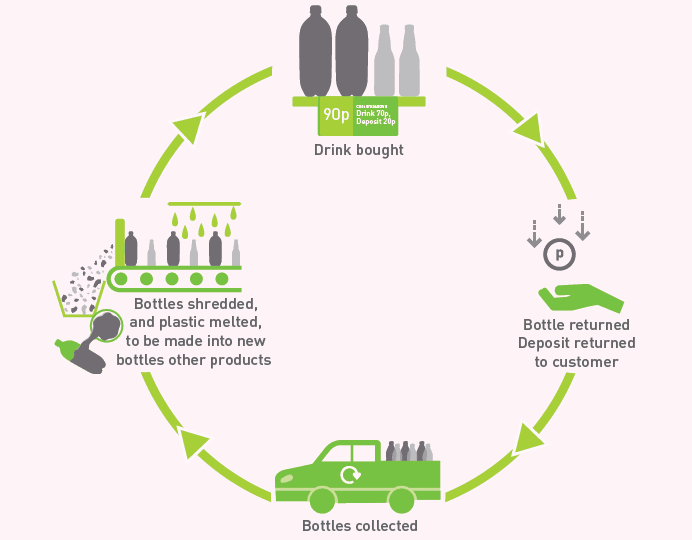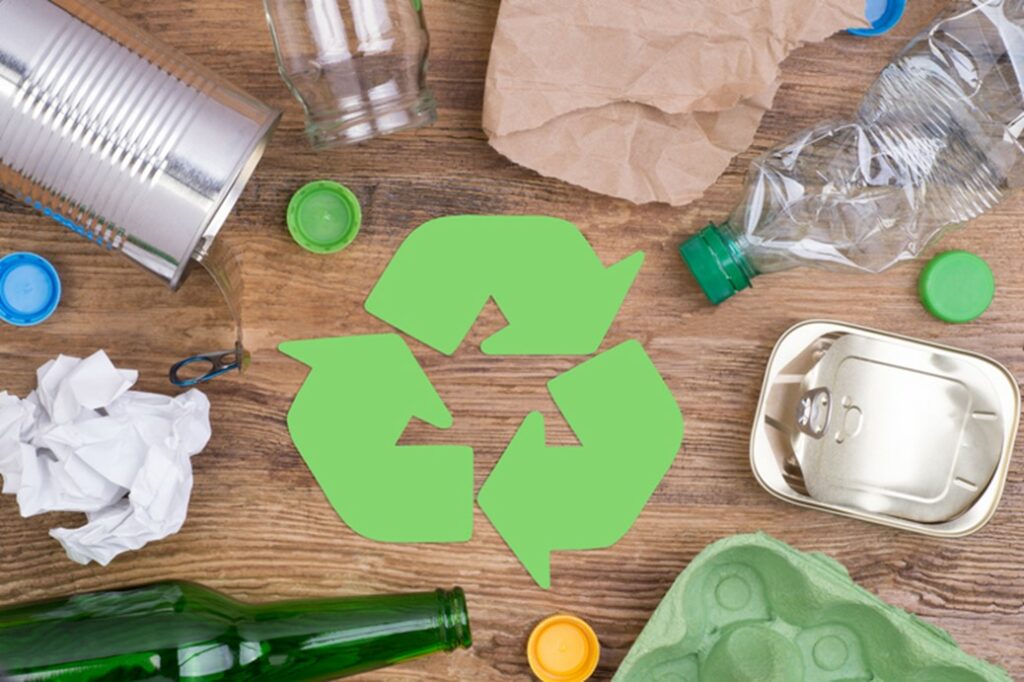22 September 2021

As part of our ongoing member and business guest blog series, Ryan Stodart of Circuthon®Consulting has written about the incoming legislation on packaging, the potential impacts for businesses and possible solutions.
Deposit Return Scheme
Over 8 billion drinks containers were unrecycled in the UK in 2019. This was largely PET bottles (40%), cans (33%) and glass (18%). There are an estimated 126 containers unrecycled annually per person in the UK, compared to only 21 per person in Germany, where one of the most effective Deposit Return Schemes (DRSs) in the world is already well-established (Greenpeace, CPRE, Reloop, 2021).
DRSs are seen as an effective incentive scheme to drive recycling rates. There are numerous examples of their efficacy across over 40 territories around the world, particularly, in Europe and North America, with a significant number in other territories under consultation or in planning.

Within the UK, a DRS is due to come into force first in Scotland, with producer registration opening on January 1st, 2022.
The Scottish DRS was due to launch in 2020 but was delayed by pandemic-related disruption. It will cover PET plastic bottles, steel and aluminium cans, and glass bottles used as drink containers for volumes of 50ml to 3L. Consumers will pay a 20p deposit which will be refunded at designated return points. The scheme will be overseen by the scheme administrator, Circularity Scotland.
The Scottish Government is currently seeking an independent review to assess whether it should still be launched as planned in 2022. Industry stakeholders have suggested that the launch date review should also consider a staggered introduction and review the inclusion of internet sales.

Consultation on a DRS in England, Wales and Northern Ireland closed earlier this year, seeking views on how the scheme will operate, including:
- scheme design
- scheme governance
- implementation timelines
- how the scheme will be enforced
The wider UK consultation has sought to reassure stakeholders that deposit levels will be adjustable – and proposes a minimum of 10-20p, and a maximum of 30-50p. It is envisaged this scheme will come into force in 2024.
Extended Producer Responsibility
Extended Producer Responsibility (EPR) is a policy approach that places significant responsibility on producers, for the treatment or disposal of products or packaging that they put onto the market.
Principally, this incentivises producers to prevent waste creation and promote better product design, that minimises waste. It also encourages producers to support the attainment of public recycling and materials management targets. This is a well-developed concept, particularly within EU countries, which is now being extended within the OECD to new products, product groups and waste streams, such as electrical appliances and electronics.
EPR will see the cost of household waste collection shift from the taxpayer to producers, in the pursuit of a more circular economy for packaging. It is envisaged that significantly more material will be kept within the cycle, reused, and recycled, and used as valuable, high-quality, secondary resource.
While producer responsibility and waste policy are devolved matters, the UK Government (acting for England) and the Devolved Administrations of Northern Ireland, Scotland and Wales have agreed to continue with a UK-wide approach to packaging EPR.
The four nations are working together to ensure that the new packaging EPR scheme aligns with existing policies as far as possible, and allows some variation based on local needs and priorities.

The joint consultation on EPR for packaging, published by the four governments, closed on the 4th of June 2021. The findings of this consultation are expected to be published in Autumn 2021.
The consultation focused on specific policy proposals for:
- its introduction, including the scope of full net costs
- producer obligations
- scheme governance
- regulation of the scheme
- and packaging waste recycling targets
The aim of the proposal is to incentivise producers to design packaging that is easy to recycle and ensure that they pay the full net cost of managing this packaging once it has been used.
Circuthon® Consulting is a circular economy consultancy, working with businesses on circular systems innovation, market positioning and future proofing operations for incoming environmental legislation.
Ryan.stodart@circuthonconsulting.com
Linkedin.com/in/ryan-stodart
@RyanStodart
Read next: Incoming environmental legislation – What does it mean for businesses?

